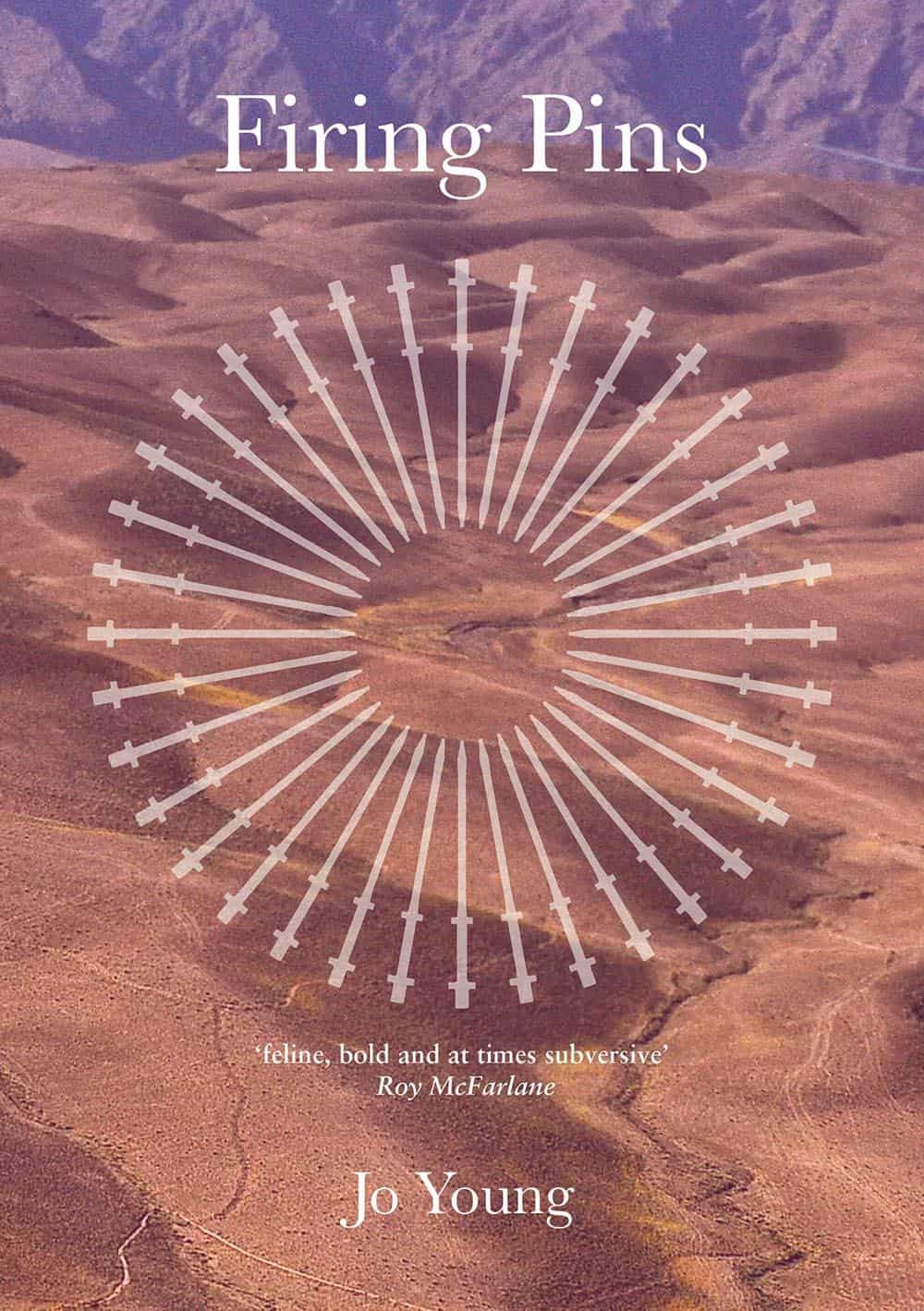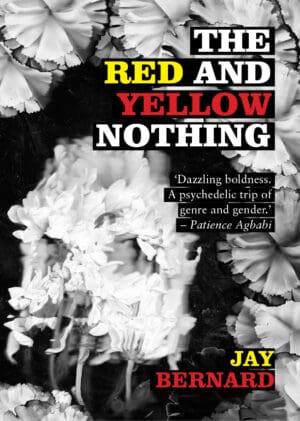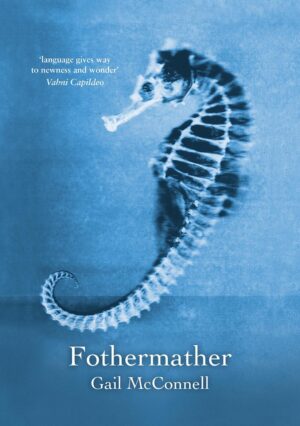Description
IS&T/CAFE WRITERS COMMISSION COMPETITION CO-WINNING PAMPHLET (2017)
Shortlisted for the 2020 Saboteur Awards Best Pamphlet.
Firing Pins: Woman as soldier. As war poet.
‘the Sisterhood is a rip tide.
there are several ways to survive:
swimming hard is not one of them.’
– from ‘Aphorisms on a Nautical Theme’
Reviews.
Even so, most war poetry is told from the point of view of men, and Young’s poetry in Firing Pins subverts stereotypical gender roles and military language to remind the reader that women have been far from passive observers of conflict. As such, while I read the pamphlet, I was aware of an underlying question: what can this also say about our conceptions of masculinity?
Dzifa Benson, The Poetry Review: 111:1, Spring 2021
How do we navigate a domain dominated by the male experience to imagine servicewoman and the spectre of war? Jo Young gives us this insight, answering questions with an aplomb and poise. There’s a precision, a telescopic engagement, a lunar light on subjects of war, service, and womanhood. Here words are perfectly picked with implicit care for details to take us behind poetic lines to the core of this collection of loss, trauma, struggle, the politics of gender and death.
Firing Pins is feline, bold and at times subversive; a collection of experiences picked up like firing pins to be re-crafted with the female touch and still retain the ability to transfer an energy from a spring-loaded hammer to the heart of the reader.
Roy McFarlane
This pamphlet both is and isn’t on the same shelf as war poetry written by men. Its subversion of gender roles both is and isn’t predictable (in a good way), mingling humour, pathos, female solidarity and political commentary. If you want to know what the army regulations are for male and female make-up, the opening poem, ‘L’Oréal Paris Infallible Gel Crayon Eyeliner in Browny Crush’ is your source. Your eye may skate over the branding language, but return to “Infallible”. Is anything in war infallible? The poem is a sort of self-portrait, with a warning not to fall into the speaker as reliable poet error; and a poetic manifesto:
I want a hard horizon, a darkening
stripe, a hungering gaze, I want to pull
on a respirator and for you to know
I’m blinking behind the foggy panes.
I want to squint through more than one layer.
Fiona Moore, Sabotage Reviews
‘…These are sharp poems of terse, layered language, but with heavy messages also coded with barrack-room humour … that ‘dick in Dundee doing a Delilah’:
Was it the lack of wine? Or the thought
of what to do with those new hard thighs?
Young crushes easy binaries. Soldier, and everything else woman. A remarkable collection.’
Beth McDonough, OPOI Reviews, Sphinx
‘Conflict, then — the tense, necessary holding of seemingly opposite things — is central to Young’s project here.
An example of this comes, perhaps, in the ways in which Young blurs the lines between weaponry and the human body. In the opening poem, ‘L’Oréal Paris Infallible Gel Crayon Eyeliner in Browny Crush’, descriptions could apply equally to the act of taking aim with a gun and to creating a kohl-rimmed eye. ‘I’m aiming for an intensity’, ‘I want a hard horizon, a darkening / stripe, a hungering gaze.’
Isabelle Thompson, OPOI Reviews, Sphinx
We hoped it wouldn’t come to this,
You roll a glance to the tin-grey sky
Ad triarios redisse.
A typical firing pin includes an indented primer at the rounded end of the rod; a spring to enure its out of contact with the primer; and, finally, some kind of block that prevents any movement forward unless the trigger is depressed. Three elements are also mirrored in the Roman Infantry forces which are also three of the titles of Jo Young;’s impressive debut collection.
First is the Hastati, ‘the poorest, youngest and least-equipped’ of the Roman infantry and we are introduced straight away in the poem of the same name to the context: the ‘restless tongues’, the ‘squatting doctor’, in a world where the personal experience of being a female soldier may list all sorts of issues: ‘unfucked for now’;’ put in a jumpsuit’; ‘Bad Thing…’losing a husband (disloyalty not death’). It’s a recruitment for ‘a petal in a plague’.
Secondly, the Principes who were the more experienced of the Roman Legions. Jo Young goes beyond acute biographical observation into the perceptions of war, of combat which intrinsically sheds a nature on living and being within ourselves and with each other. “The red-ribboned danger zone is a sweet meniscus, balanced as a withheld kiss’. ‘Two-point-six-million words and not one of them of love…not one of them of grace’
Triarii were brought into the fray when ‘the tide of battle was strong against them’, for these Legions were the elite and hardened veterans.
the truffling knack of metastasis,
you, trampling the line between shrug or cry
ad triarios redisse
Of comradeship and experience, of friendship torn away in conflict or the resilience and directness of having to stand up and be counted. All this in forms from prose poems to lyrical and vocabulary-rich pieces where lines of the poems are varied, always accessible in a physically linguistic way, resonant even beyond the experience of soldiering or ego but confronting, through the experience, a matter of Being. When a moment is between life and death the essence of our being and relating is confronted.
The sequence Lost Things: Afghanistan needs closer scrutiny and appreciation which the reader will appreciate. This debut reveals a soldier’s voice, a female voice ‘helmet-hidden’ right from the beginning. From the start the musicality and rhythm of line strikes an immediate engagement open to that beat, that voice, that experience. All this “framed with a softening care.”
You transmit the hope of an activist,
or the dust-coated trucks of a resupply.
We must not let it come to this,
ad trisrios redisse.
Jeffrey Loffman February 2020



